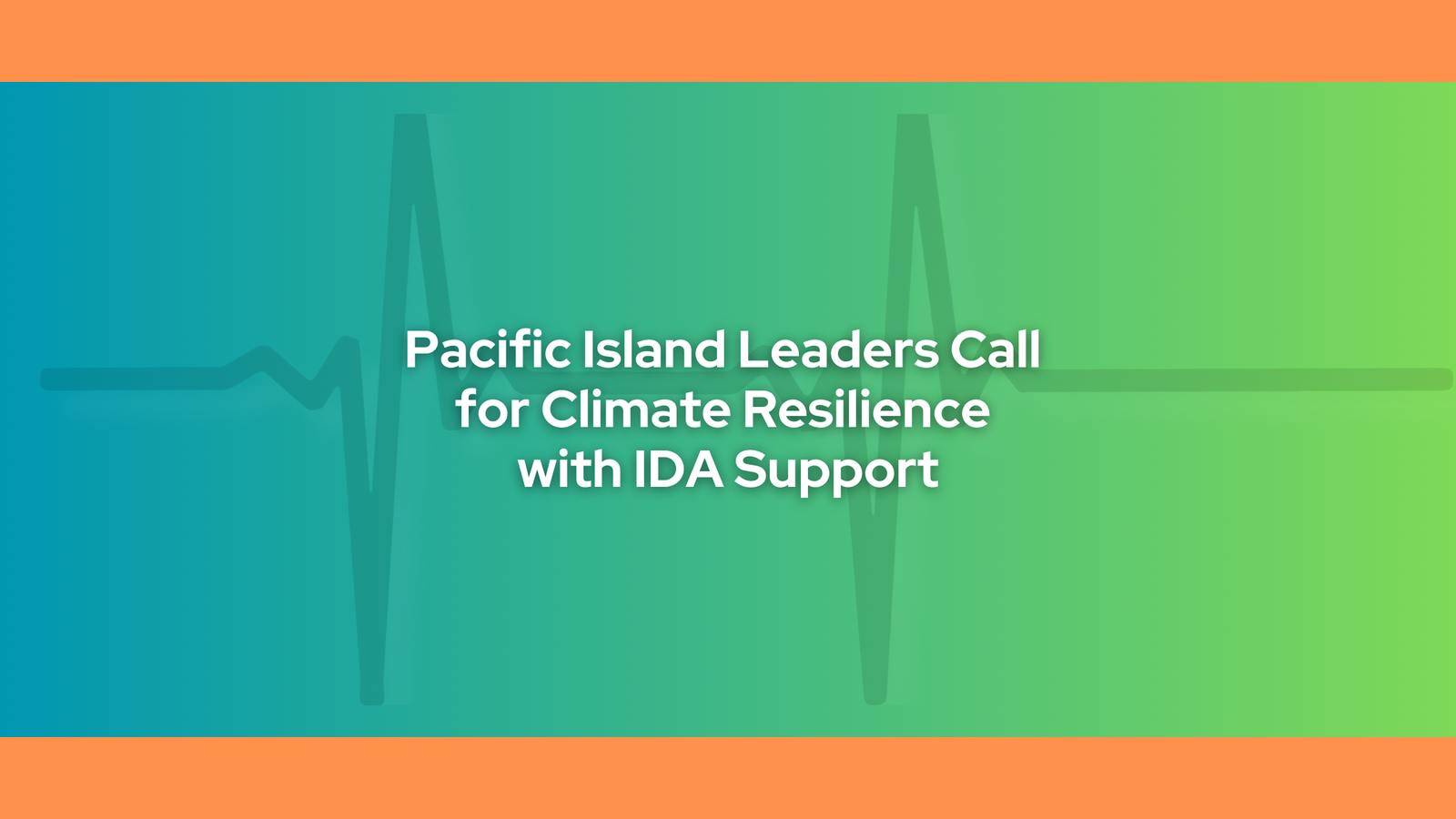
While climate change affects the entire world, the poorer a country is, the more vulnerable it is to its risks. Pacific Island countries bear the brunt of climate change impacts despite being only accountable for less than 1 percent of greenhouse gases globally. To promote sustainable development and climate resilience, Pacific Island nations have demanded a daring 21st replenishment of the International Development Association (IDA).
Reiterating what the African Heads of State discussed in April about how IDA is a foundation of success, the leaders of the Pacific Islands have underlined how more financing is urgently needed to address the climate-related issues endangering their businesses, infrastructure, and way of life.
Leaders and delegates from eleven nations convened on Sept. 10, hosted by the Pacific Islands Forum Secretariat, to discuss IDA’s vital role in assisting Pacific islands in advancing development and climate resilience. Ajay Banga, president of the World Bank Group, was also in attendance.

IDA, a branch of the World Bank, plays an important role in helping vulnerable small states like the Pacific Islands. Its special ability to multiply each donor’s cash four times improves its ability to make an immediate and necessary impact. The fund is refilled every three years, and donor nations will convene in South Korea in December to conclude the pledging period.
Tonga’s Prime Minister and Forum Chair Hu’akavemeiliku said that the Pacific region could see significant improvements if IDA21 were successful. “With the right support, Pacific nations can build a transformative and resilient Pasifiki, for a prosperous future now, and for generations to come,” he added.
Representatives and leaders from Fiji, Federated States of Micronesia, Kiribati, Nauru, Papua New Guinea, Republic of the Marshall Islands, Samoa, Solomon Islands, Tonga, Tuvalu, and Vanuatu have talked with Banga about how IDA21 can align with and help the Pacific Island Forum’s 2050 Strategy for the Blue Pacific Continent, focusing on their development goals and initiatives.
IDA has supported infrastructure projects that improve climate resilience in the Pacific Islands, with low-interest loans and grants. This is pertinent to these small island states because, despite their minimal global carbon emissions, they suffer disproportionately from the effects of climate change. As they face rising sea levels, intensifying storms, and unpredictable weather patterns, IDA’s financial support is essential to secure a resilient and sustainable future.

For instance, the National Aeronautics and Space Administration has discovered that Tuvalu’s sea level is rising at a 1.5 times speed than the average. By 2100, it is predicted to have more than doubled. By 2050, the majority of its land will be below high tide. With 67% of all infrastructure located 500 meters or less from the ocean, this trend is worrisome for all Pacific Island nations.
The 2050 Strategy of the Pacific Islands Forum presents a vision of a successful and resilient future, emphasizing job creation, connectivity, and climate. To guarantee complete ownership and accountability in achieving common goals, Pacific leaders seek support throughout the region.
Pacific leaders stressed the importance of IDA’s concessional financing and experience in executing the 2050 Strategy. Important contributions include the recent Pacific Strengthening Correspondent Banking Relationships Project, enhancing digital connection and economic prospects, and supporting infrastructure and disaster resilience.
Pacific leaders also emphasized how important it is for IDA to support digital connection, infrastructure, resilience to disasters, and economic prospects. They also demanded more access to concessional financing and supported the World Bank’s objective of dedicating 45% of its funding to climate-related initiatives.
“That is why we call on IDA donors to ensure a strong and robust replenishment for IDA this year,” said Pacific Islands Forum Secretary General Baron Waqa. “We look forward to strengthening our partnership with the World Bank Group and achieving our shared goals.”
While acknowledging that IDA contributors faced global economic pressures, the leaders emphasized the necessity of attending to the needs of vulnerable nations. This restates the April 2024 request from African leaders for further funding for IDA countries.